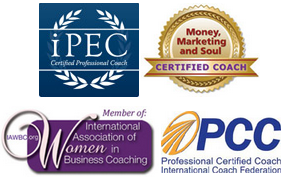Sliding Scales and Pro-Bono, Should you Work for Less—Or Free?
 If you have a business that helps people, then you probably aren’t in it just for the money. Most people who start businesses such as coaching, healing, or other type of services that contribute to the health, well-being, personal growth or business growth of others are in it mainly for the satisfaction of helping people.
If you have a business that helps people, then you probably aren’t in it just for the money. Most people who start businesses such as coaching, healing, or other type of services that contribute to the health, well-being, personal growth or business growth of others are in it mainly for the satisfaction of helping people.
On the other hand, even if you’re doing what you love and helping people, you have to make a living. I’ve spoken to many entrepreneurs who struggle with this conflict, who have been sliding their services too much or giving them away for free.
Add to that all of the “free” information given away on the internet (I give quite a bit away myself), and it’s no wonder people are confused about when and what to charge for their services, especially those with newer businesses. I’ll address this shortly.
When I first became a marketing coach, I was drawn into a conversation with my hairdresser (who owned a high end salon) about marketing his business. I was so passionate and enthusiastic about the subject that without really realizing it, I gave him a lot of valuable information for free. He mentioned something about offering me a free service at the end of our “conversation,” but he never followed through.
Then, within a month I began to see ample evidence that he was putting my ideas and knowledge to good use. I felt used and abused. Right then I had a talk with myself about valuing my stock in trade: my marketing knowledge and keeping my mouth shut unless someone was paying me.
It’s just so easy to think you can give something away or for a very low price when it doesn’t appear to cost you anything. But that’s a mistake in perception—it does cost you, big time!
Here are five examples of what giving away or sliding your service may cost you:
- Your money that you paid for all of your training, certifications and for staying current in your field. Think about it. No one gave you that information and training for free. You paid for it, most likely quite a bit. And you’ll continue to invest in yourself in the future. So every time you just give away what you paid for, that’s really the same as you paying for that person’s services.
- Your confidence in the value of your service: If you don’t feel comfortable asking for the full amount of your service from everyone, then you don’t really have confidence in the value. Remember this: if it wasn’t valuable, people wouldn’t be asking for it. Your knowledge and skills are valuable.
- Your integrity with the clients who have paid you, full price. Few people have so much money that it isn’t of great value to them. So if someone invests in you, they are making a significant choice on where to spend their money. How would they feel if they knew you were so easily giving it away to others?
- Your time: The time you spend performing your service to others for free could have been spent on marketing for paying clients. You could be losing several paying clients while you help someone for much less, or for free.
- Your sense of self-worth: As I mentioned above, I felt pretty crummy after giving all that great expertise away and then getting nothing in return for it, especially when I saw the person I gave it to take full advantage. Don’t make the same mistake.
There’s one more question that needs to be answered: what about the whole idea of content marketing, giving stuff away for free? Well, there’s a big difference between content marketing and simply giving away your services.
Here’s the difference: When you use content marketing and give a free taste to people, it’s strategic.
You’re giving just enough of specific information to whet their appetite so they want more. It’s so they take the next step and hire you. If they choose not to, they’ve gained some great nuggets of information.
But you haven’t given away the farm; you’ve carefully chosen your free offers. And if you’ve done it correctly, then most of your “paid in full” business will come from those offers.
Finally, people don’t value what they don’t pay for. In fact, the less they pay, the less they value it. So next time you’re tempted to give part or all of your core expertise away, remember: Your expertise is extremely valuable, so honor yourself (and others) by charging what you’re worth.








Kellie, I need to post this on the frig! Thanks for summarizing all the reasons to not give our services away for free so succinctly and convincingly. The one that really hit home for me was the ‘Integrity” piece since I just agreed to help a good friend with her retirement decision as a beta test. At the same time, I’m charging another friend, so now I feel out of integrity.
Another marketing coach I know posted an article recently suggesting that new coaches do take a couple of free clients in their niche just to get some practice. He said to ask for a testimonial in return. Others have suggested 3 referrals in return for free coaching.
Have a well-deserved vacation in the sun!
Virginia
Hi Virginia: I’m glad you found the article helpful. Regarding take a few free clients in your niche to get practice: if you have a coaching certification you have a tremendous amount of value to offer. I don’t think you need to take free clients, what you need is to realize your value and then communicate it well to others! You don’t have to start at top dollar, but don’t set your prices so low you’re a bargain, either. People tend to judge how good you are based on how much you charge, unfortunately, and that goes for “free” too. Start by charging a fair investment, then as you get more practice and gain confidence, raise your rates!